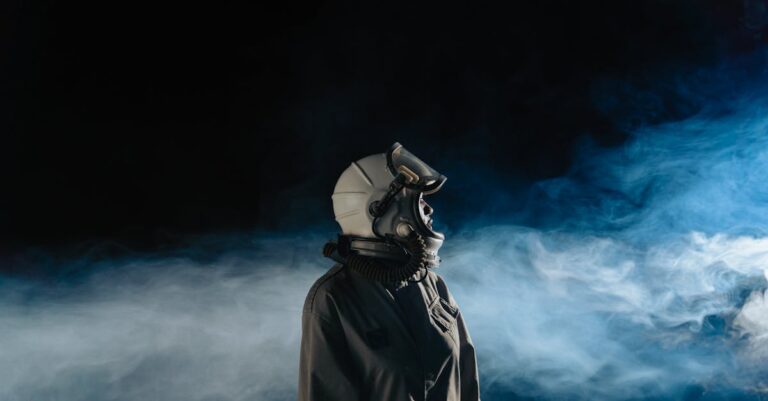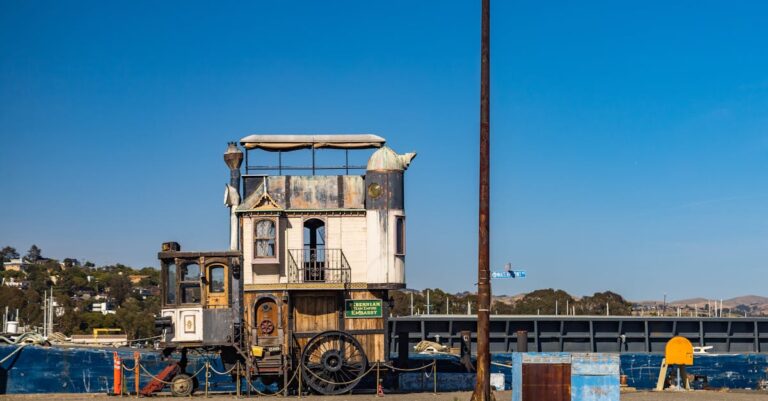
The air reeked of iron and burnt linen as Clara Bennett pressed her palms against the cold steel of the operating table, her knuckles whitening. Outside, the distant thunder of cannons rolled over the field hospital, a relentless heartbeat that matched the frantic rhythm of the wounded men groaning on the cots around her. She had learned to ignore the smell of blood—how it clung to her apron, seeped into her hair—but today, the stench felt heavier, as though the war itself had grown tired of its own violence.
“Clara, hold him still,” Dr. Whitaker barked, his voice a blade against the chaos. She obeyed, her fingers digging into the shoulder of a young private whose leg had been torn open by shrapnel. His eyes were wide, unseeing, as she pressed down, her mind flashing to the letter she’d received that morning. It was folded twice, the ink smudged where his hand had trembled. *I’m not afraid,* he’d written. *But I don’t know how much longer I can keep going.*
The man beneath her gasped, his body convulsing as the surgeon’s scalpel sliced through muscle. Clara forced herself to breathe, to focus on the steady rise and fall of his chest despite the chaos. She had no choice. The war had taken her brother last spring, and now it was taking others—men she’d known by name, by laugh, by the way they’d once smiled at her over a cup of weak coffee in the hospital’s dimly lit kitchen.
“We need more light,” someone shouted. A lantern was thrust into Clara’s hands, its flame flickering against the rain-slicked canvas of the tent. She adjusted it, her fingers numb, and watched as Dr. Whitaker worked. The man’s leg was gone, reduced to a mangled stump. Clara had seen worse—had seen men lose both arms, had held the hands of those who died screaming—but today, the weight of it all felt different. Like the war was closing in, squeezing the air from her lungs.
A commotion at the entrance. A nurse stumbled in, her uniform soaked through. “They’re coming,” she panted. “The Confederates—there’s a skirmish near the river. We’ll be overrun if we don’t move.” The words hung in the air, a death sentence for the wounded who could not walk. Clara’s heart pounded. She thought of the letter again, of her brother’s final words. *I’m not afraid.*
“We’ll stay,” Dr. Whitaker said, his voice steady. “We’ve nowhere else to go.”
Clara didn’t argue. She had no strength left for it. Instead, she turned back to the table, her hands trembling as she wiped the blood from the young private’s face. His eyes were still open, staring at nothing. She closed them gently, her throat tight. The war had taken him, but not before he’d written her a letter. Not before he’d left her with a final, unspoken promise: *I’ll see you again.*
—
The first explosion shattered the tent’s canvas, sending a shower of debris into the air. Clara dropped to her knees, shielding the wounded as the world turned upside down. The sound was deafening, a roar that drowned out everything else. She had heard cannon fire before, had felt the earth tremble beneath her feet, but this—this was different. It was closer. Too close.
“Get them out of here!” Dr. Whitaker’s voice cut through the chaos. Clara scrambled to her feet, her legs shaking as she pulled the young private’s cot toward the exit. The tent was collapsing around them, the air thick with smoke and the acrid smell of gunpowder. A second explosion rocked the ground, and she stumbled, her hand scraping against the rough wood of the cot. Blood seeped into her gloves, but she didn’t stop.
Outside, the sky was lit with fire. The river glowed an unnatural red, its surface broken by the shells that arced overhead. Clara’s breath came in ragged gasps as she dragged the cot toward the trees, her mind racing. The wounded couldn’t run. They couldn’t fight. All she could do was keep them alive—keep them from becoming another body in the dirt.
“Clara!” A voice rang out, sharp and urgent. She turned to see a nurse, her face streaked with soot, waving frantically. “The north wing—there’s a group of soldiers trapped there!”
Without hesitation, Clara sprinted toward the burning building, her boots slapping against the wet earth. The heat was unbearable, the air thick with smoke. She could see them now—soldiers huddled in a corner, their uniforms tattered, their faces pale. One of them caught her eye, his face familiar despite the soot. A young man, no older than twenty, his eyes wide with fear.
“Help us,” he pleaded, his voice barely above a whisper. Clara dropped to her knees beside him, her hands trembling as she assessed the wound—a deep gash in his side, blood pooling around him. She had no time to think, no time to second-guess. She tore open her apron, using it to press against the wound. The man gasped, his body convulsing under her touch.
“Hold on,” she whispered, though she didn’t know if he could hear her. The fire was closing in, the heat searing her skin. She looked around, searching for a way out, and saw a crack in the wall—a narrow opening just wide enough for them to squeeze through. “We have to go now,” she told the others, her voice firm despite the panic clawing at her chest.
One by one, they crawled through the gap, Clara pulling the injured behind her. The air was thick with smoke, but she didn’t stop. She couldn’t. Every step felt like a battle, every breath like a prayer. When they finally emerged on the other side, the world was still burning, but the soldiers were alive. That was all that mattered.
—
The next day, Clara sat by the river, her hands soaked in cold water as she washed the blood from her gloves. The camp was quiet, too quiet. The wounded had been moved to a safer location, but the damage was done. She could still hear the echoes of the explosions, feel the weight of the dead in her bones.
A shadow fell over her. She looked up to see Dr. Whitaker, his face drawn with exhaustion. “We lost more than we expected,” he said, his voice low. “But we saved some. That’s something.”
Clara nodded, though the words felt hollow. The war had taken so much—her brother, her home, her sense of safety. And yet, here she was, still fighting. Still trying to save what little remained.
“You did good,” he said, but Clara didn’t believe him. She had seen too much, felt too much. The war had changed her, and she wasn’t sure she liked the person she’d become.
She looked down at her hands, still stained with blood, and wondered if there would ever be a time when the war would let her go.
—
Weeks passed, but the war showed no sign of ending. Clara remained at the hospital, tending to the wounded, burying the dead. The days blurred together, each one a repetition of pain and loss. But there were moments—small, fleeting moments—that reminded her why she stayed.
One evening, as the sun dipped below the horizon, casting the camp in golden light, Clara sat by the river again. A group of soldiers gathered nearby, laughing over a shared bottle of whiskey. Their faces were rough, their clothes worn, but there was something in their eyes—something that hadn’t been completely stolen by the war.
She watched them, a strange warmth spreading through her chest. These men had survived. They had endured. And so had she.
A voice broke through her thoughts. “You’re still here,” said a familiar voice. Clara turned to see the young soldier from the burning building, his wound now healed but still a scar across his side. He offered a small smile. “I thought you’d be gone by now.”
“I’m not going anywhere,” she said, her voice steady. “Not yet.”
He nodded, the smile lingering. “Good. We’ll need you.”
Clara didn’t know if that was true, but she chose to believe it. The war had taken so much, but it hadn’t taken everything. And as long as there were still lives to save, she would stay.
—
The war ended in the spring, though it felt more like a slow fading than a sudden end. The camps emptied, the wounded were sent home, and the soldiers returned to their lives—some broken, some whole. Clara remained at the hospital for a while longer, helping to clean up the remnants of the conflict.
One morning, as she stood by the river, she thought about everything she had seen—the blood, the pain, the loss. And yet, she also thought about the moments that had kept her going: the laughter of the soldiers, the quiet strength of the nurses, the way hope had managed to survive even in the darkest of times.
She didn’t know what came next. The world had changed, and so had she. But for the first time in a long while, she felt something close to peace. The war had taken much, but it hadn’t taken everything. And as she turned away from the river, she carried that truth with her, a quiet promise that she would keep moving forward.


